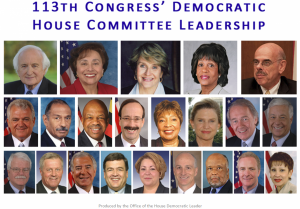Many promises have been made that any number of conservative policies will bring jobs back to America. In this post, we’ll examine the claim that lower corporate taxes will reduce offshoring of jobs by presenting a simple example.
Imagine a multinational company, Big Widget Inc. (BWI), can make widgets either in the United States or in Mexico. In Mexico, where environmental regulations are gentler and wages lower, BWI can make widgets for $90. In the United States, they can make widgets for $95. No matter where they manufacture them, they can sell widgets for $100 in the United States.
Now, in this fictional world, let’s imagine the corporate tax rate is the same 40% in both countries. How much tax will BWI pay and to whom? Answering this requires a short primer on transfer pricing. When a company does business in 2 countries, it has a separate affiliate organization in each country. When goods manufactured by BWI Mexico are imported by BWI America, BWI assigns a “price” for those goods as if BWI Mexico sold those goods to BWI America. The price is called the transfer price. Ideally, this price will match the price that two unaffiliated companies would agree on. The terminology here is “arms length.” The tax authority in each country tries to prevent companies from gaming the transfer price, but there’s some wiggle room here.
If the two countries have the same tax rate, then BWI doesn’t care what the transfer price is. But, the two countries do. If the transfer price is $90, then BWI Mexico recognizes zero profit in Mexico and the USA collects all the taxes. If the transfer price is $100, then BWI Mexico recognizes all of the profit and Mexico collects all the taxes. In either case, BWI pays 40% of it’s $10 profit, or $4.
But Republicans tell us that reducing that corporate tax rate will bring that manufacturing back to the USA. Let’s explore that.
Imagine America cut its corporate income tax to 10% while Mexico holds its tax rate at 40%. In this scenario, BWI wants to minimize the transfer price for widgets. If the transfer price is $90, BWI can recognize the whole $10 profit in the USA and pay just $1 (10%) on its US profit. That’s a nice windfall for BWI but a big loss in tax revenue for Mexico. Mexico will probably insist on a higher transfer price. Maybe $95. At that transfer price and those tax rates, would widget manufacturing return to America?
By importing widgets at a $95 transfer price, BWI can make a $5 profit in each country. Mexico charges a 40% tax on the $5 attributed to BMI Mexico and the US charges 10% on the profit attributed to BWI America, so BWI Mexico pays $2 in taxes (40% x $5), BWI America pays $0.50 and BWI keeps a $7.50 after tax profit. That’s certainly better than the $6 after tax profit before the rate cut. But will BWI be motivated to move manufacturing to the US? In America, they can manufacture widgets for $95 and sell them for $100 and make a $4 after tax profit. BWI will still import since $7.50 beats $4. In fact, even at a transfer price of $100, which forces all profit on imported widgets to be taxed at the high Mexican rate, BWI *still* makes higher after tax profit by importing. The transfer price has to be over $105 (forcing the BMI America to sell at a loss!) before manufacturing in the US generates higher profits (Try it!).
I, myself, don’t see much reason to believe lowering the tax rate will boost American manufacturing. But, there’s another effect of this strategy that’s even more distressing. The policy fight over the transfer price rearranges some political alliances. We can see this by examining the desires of each of several parties–the US government, the Mexican government, US manufacturers and US workers. Two parties have an interest in a low transfer price. The US government wants a low transfer price so that profit is recognized in the US and can be taxed there. Manufacturing firms also want a low transfer price since they can pay less tax overall by moving profits to the low-tax US.
There are two parties in favor of high transfer prices, too. The Mexican government wants a high transfer price to keep taxable profits in Mexico. The other party interested in a high transfer price is American workers. It was only a very high transfer price that made manufacturing in the US more attractive. So, US workers and their unions will push to keep the transfer price high in order to move manufacturing from Mexico to the US. The sudden drop in the US corporate tax rate aligns US corporations and the US government in opposition to the Mexican government and US workers. The reader is left to decide for themselves who they think will win this political fight–the combined forces of multinational firms and US legislators or the Mexican government and American workers. But you can probably guess what I would predict.
This gaming of the corporate tax rate has two sets of winners, both of them powerful. But none of them are you and me.













